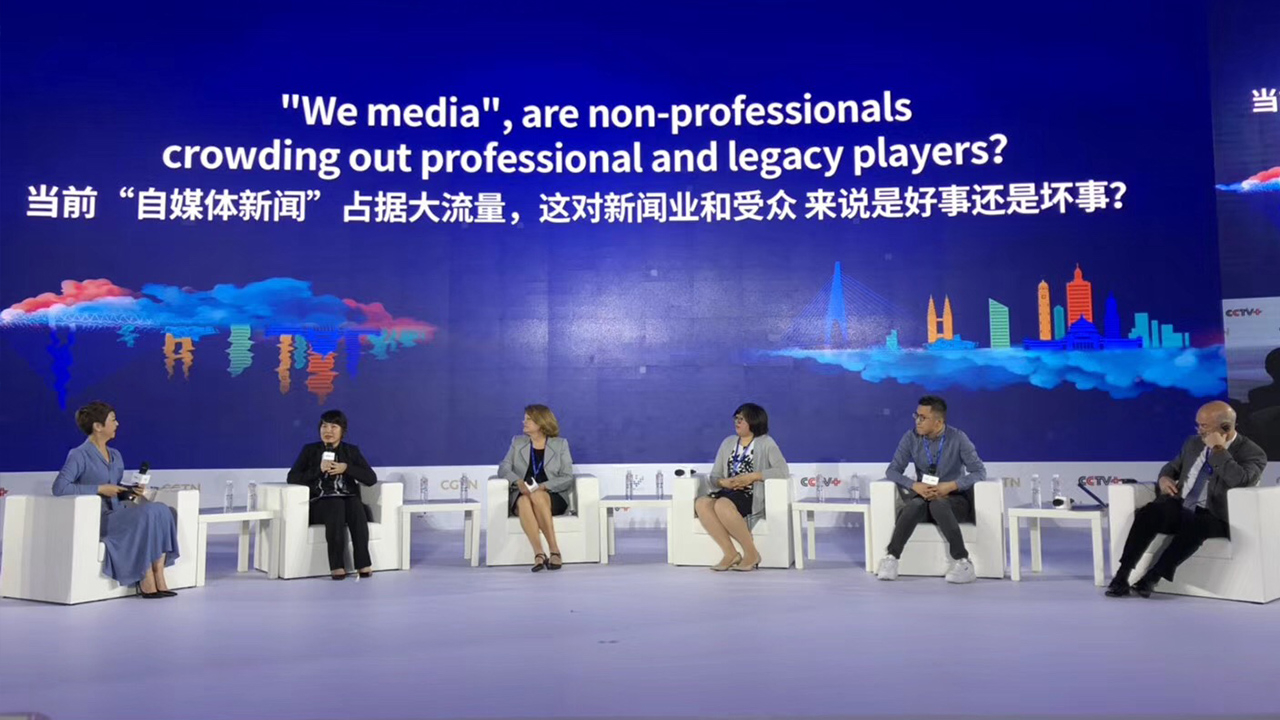
Culture
15:52, 16-Oct-2018
CGTN Global Media Summit: Learning from the emergence of 'we media'
Updated
15:09, 19-Oct-2018
By Meng Qingsheng
53:51

The CGTN Global Media Summit opened Tuesday morning in southwest China's Chongqing Municipality, along with CCTV+ Video Media Forum (VMF2018).
At the first panel discussion, guests from the media sector held heated discussions over whether “we media,” where non-professionals produce huge amounts of content, are crowding out professional journalists in terms of readership and popularity.
Are 'we media' less trustworthy?
There's a growing trend across the world that young people tend to resort to “we media” for independent and transparent dissemination of news stories. Sally Buzbee, Senior Vice President and Executive Editor of The Associated Press, says, if left unchecked, “we media” could be a hotbed for fake news. Some of the extreme cases have already done harm to the public's yearning for truth and facts.
Tang Yi, Deputy Director of the New Media Department of China Central Television (CCTV), expressed that in general, traditional mainstream media have already felt pressures coming from the “we media” sector, for its rapid and extensive response to social happenings. However, Tang, pointed out that providing trustworthy content should always be a top priority, and it relies on professionals' efforts to make judgments on news values and dig deeper into its authenticity.
What are the rules to follow?
Alexy Nikolov, Managing Editor of Russia Today (RT) shared with participants that while the emergence of “we media” provides the public with more choices in news sources, some of them simply do not abide by well-accepted rules. He called for the media to re-evaluate the rules guiding the news industry's development, and highlighted the importance of quality over quantity.
Yu Qi, General Manager of the Media Relationship Department at Weibo, says “we media” needs to uphold professionalism and journalism ethics in disseminating the news. Her team has taken several initiatives to ensure the quality of Weibo postings, including a mechanism to terminate rumors' spreading, that once detected, would be tagged as rumors and be kept online to remind people of the consequences.
Jiang Yusen, CEO of Pear Video, says “we media” in general provides a channel for the public to make their voices heard and interact with others at the same time. Currently, there are more than 80,000 contributors on the Pear Video platform. But he emphasized the necessity to check and verify sources, which, for his part, involves modern technologies like artificial intelligence to facilitate quality contents.
Competition or cooperation?
Panelists attending Tuesday's event agreed that there needed to be a push for traditional media and "we media" to work together in the healthy development of the news industry
Sally Buzbee said that while the diversity of media forms provides a broader spectrum of news choices, people should be open to new changes and new ways of expression. And cooperation will help ensure editorial purity and the credibility of journalism.
Yu Qi from Weibo said a concerted effort will help media produce content in a more efficient way. In specific, she suggested that traditional media learn from “we media” to understand how to create content that's popular among users.

SITEMAP
Copyright © 2018 CGTN. Beijing ICP prepared NO.16065310-3
Copyright © 2018 CGTN. Beijing ICP prepared NO.16065310-3